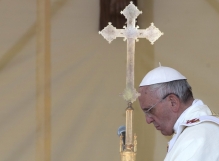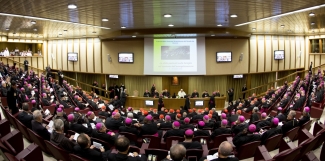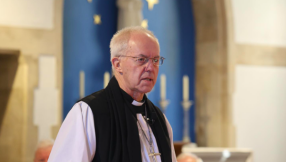The Pope has made good his pledge to improve the marriage annulment process for Catholics. However, the latest changes he made to simplify the legal procedure will affect just the minority of cases that go to appeal.
In a legal decree called a "rescript", Pope Francis changed technical aspects of the procedure at the Catholic Church's highest court of appeal, the Sacred Roman Rota.
The Dean of the Roman Rota, Monsignor Pio Vito Pinto, said one of the reasons for the decree was to emphasise that the changes to simplify the procedure must be acted upon. "Because every law of epochal importance, such as the laws reforming the marital nullity process, meets understandable resistance, the Pope desired to emphasise, as did John Paul II for the promulgation of the Code of Canon Law of 1983, that the law is now promulgated and requires compliance," he said, according to Vatican Radio.
The appeal court has returned to the ancient formula of "generic doubt" of deciding a case on whether there was any evidence of nullity. Local courts will still decide specific questions around whether a marriage is null.
The rescript itself in its preamble says the aim is to facilitate the salvation of souls, and that all the Church's legal structures must therefore be "vehicles of reconciliation and renewal" for the faithful.
October's Synod of Bishops on the family exhorted that the Church reach out to "her most fragile children, marked by love wounded and lost, to whom it is necessary to give back confidence and hope." The aim was to help those who "live the drama of marital failure" to be reached by the healing work of Christ.
The Pope issued two documents in September to make the process cheaper and faster. The latest new rules are intended to facilitate this.
Church courts around the world heard around 50,000 annulment cases in 2012. Just a few hundred went on up to appeal at the Roman Rota.
















